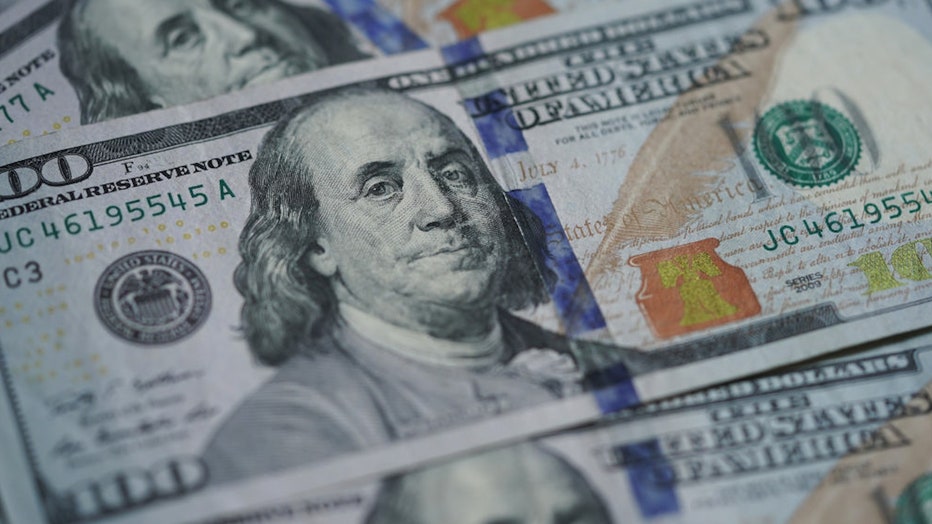Woman allegedly goes on shopping spree after receiving $150K COVID-19 loan
CHARLOTTE, N.C. - A North Carolina woman was indicted for fraudulently obtaining a COVID-19 small business loan amounting to nearly $150,000, and is accused of using it to shop at Nordstrom, Neiman Marcus, Louis Vuitton and other retailers, according to the U.S. Department of Justice.
Jasmine Johnnae Clifton, 24, allegedly "engaged in a scheme to defraud the SBA by obtaining an Economic Injury Disaster Loan (EIDL) based on false information," a news release stated.
In April 2019, Clifton allegedly created a small business called Jazzy Jaz LLC, an online retail clothing sales business, according to the indictment, and on July 24, 2020, Clifton submitted a fraudulent loan application to the U.S. Small Business Loan Administration despite closing her business several months prior.

FILE - Photo taken on March 17, 2020 shows U.S. dollar banknotes in Washington D.C., the United States. (Xinhua/Liu Jie via Getty Images)
RELATED: Man charged for seeking PPP loans for fake companies with 'Game of Thrones' names
Clifton received aid to the tune of $149,900 which was meant to help her struggling business amid the COVID-19 pandemic, according to the news release. However, Clifton allegedly went on a shopping spree with the money she directly deposited into her bank account.
"Clifton allegedly used the government funds to make purchases at numerous retail stores, including at Nordstrom, Ikea, Neiman Marcus, Rooms To Go, Louis Vuitton, Best Buy and other retail shopping outlets. Clifton also made purchases at multiple diamond stores," the news release read.
Clifton was released on bond after appearing in court on Tuesday.
"The charge of wire fraud in relation to disaster benefit carries a maximum prison term of 30 years and a $1,000,000 fine. The maximum penalty for fraud in connection with major disaster or emergency benefits is 30 years in prison and a $250,000 fine," according to the department.
The Coronavirus Aid, Relief, and Economic Security (CARES) Act, a federal law enacted on March 29, 2020. Some of the funds from the act were intended to provide emergency financial assistance to millions of Americans who have been negatively impacted by the economic effects of the pandemic.
In April of 2020, Congress authorized over $300 billion in additional PPP funding to businesses impacted by the ongoing pandemic.
RELATED: US cybersecurity agency warns of fake COVID-19 Small Business Administration loan website
Consequently, the Office of Small Business Administration (SBA) Inspector General Michael Ware found that it may have distributed billions of dollars to fraudulent businesses claiming financial distress due to the COVID-19 pandemic, according to a report published in October 2020.
The report alleges that the SBA let their guards down in order to expedite the loan approval process and failed to vet illegitimate applicants.
"To expedite the process, SBA ‘lowered the guardrails’ or relaxed internal controls, which significantly increased the risk of program fraud," the report stated.
As of July 31, the SBA approved $14.3 billion in COVID-19 Economic Injury Disaster Loans (EIDL) to accounts that differed from the original bank accounts listed on the loan applications; $62.7 billion in multiple COVID-19 EIDLs to applicants using the same IP addresses, email addresses, bank accounts, or businesses listed at the same addresses; and approximately $1.1 billion in COVID-19 EIDLs and emergency advance grants to potentially ineligible businesses, according to the report.


